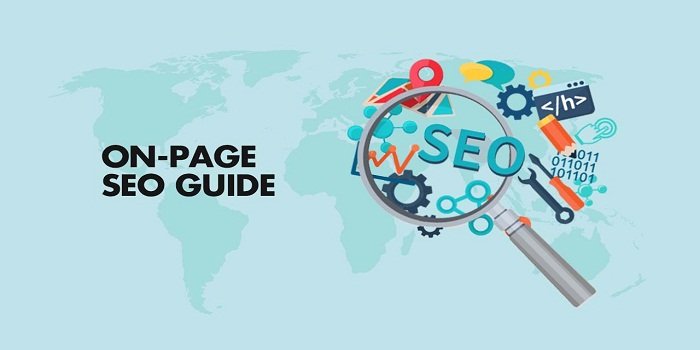SEO (Search Engine Optimization) is crucial for online visibility and organic traffic growth. However, many businesses fall into common pitfalls that hinder their SEO efforts. Understanding these SEO mistakes and learning how to avoid them can significantly improve your website’s ranking and online presence.
Table of contents
Lack of Keyword Research
One of the most prevalent SEO mistakes is the lack of proper keyword research. Keywords are the foundation of SEO, and not targeting the right ones can lead to irrelevant traffic or low search engine rankings. Conduct thorough keyword research using tools like Google Keyword Planner or SEMrush to identify high-volume, relevant keywords for your content.

Ignoring On-Page Optimization
On-page optimization plays a crucial role in SEO success. Ignoring elements like meta tags, headings, image alt text, and URL structure can harm your website’s visibility. Optimize each page with relevant keywords, compelling meta descriptions, and structured content to improve search engine rankings.

Overlooking Mobile Optimization
With the rise of mobile device usage, optimizing your website for mobile is non-negotiable. Neglecting mobile optimization can lead to poor user experience, higher bounce rates, and lower search rankings. Ensure your website is responsive, loads quickly on mobile devices, and offers a seamless browsing experience.
Moreover, mobile optimization impacts your site’s performance in search engine results. Search engines like Google prioritize mobile-friendly websites in their rankings, considering factors such as mobile page load speed, readability, and overall usability. By neglecting mobile optimization, you risk losing visibility and traffic, especially as more users rely on mobile devices for online activities.

Neglecting Quality Content
Content quality is paramount in SEO. Publishing thin, duplicate, or irrelevant content can negatively impact your website’s credibility and ranking. Focus on creating high-quality, engaging content that addresses user intent, provides value, and encourages social sharing and backlinks.
| Aspect | Explanation |
| Content Quality | High-quality content is vital for SEO success as it boosts credibility, enhances user experience, and improves search engine ranking. |
| User Intent | Addressing user intent means creating content that directly meets users’ needs and interests, leading to higher engagement and satisfaction. |
| Value | Providing valuable information establishes brand authority, builds trust with users, and encourages repeat visits and referrals. |
| Social Sharing | Engaging content encourages users to share it on social media, expanding reach, visibility, and potential for virality. |
| Backlinks | Quality content attracts natural backlinks from authoritative sources, enhancing website authority, credibility, and search engine ranking. |

Misusing Backlinks
While backlinks are valuable for SEO, misusing them can result in penalties from search engines. Avoid buying links, participating in link schemes, or using irrelevant anchor text. Instead, focus on earning natural backlinks from authoritative websites through quality content and outreach efforts.
Buying Links: Purchasing links from websites solely for the purpose of boosting SEO is a black hat SEO technique. Search engines like Google can detect paid links and may penalize websites that engage in this practice. Instead, focus on organic link building strategies that involve earning links naturally.
Participating in Link Schemes: Link schemes involve activities such as link exchanges, link farms, or excessive reciprocal linking. These schemes aim to manipulate search rankings but are not considered legitimate by search engines. Engaging in such schemes can lead to penalties. It’s important to build links organically through valuable content and genuine relationships with other websites.
Using Irrelevant Anchor Text: Anchor text is the clickable text in a hyperlink. Using irrelevant or overly optimized anchor text (keyword-rich anchor text used excessively) can raise red flags to search engines. Aim for natural anchor text that is relevant to the content it’s linking to and provides value to users.

Failing to Monitor Analytics
Effective SEO requires continuous monitoring and analysis of website performance. Failing to track key metrics like traffic sources, bounce rates, keyword rankings, and conversion rates can lead to missed opportunities and ineffective strategies. Use analytics tools like Google Analytics to measure and optimize your SEO efforts.
- Traffic Sources: Monitoring where your website traffic is coming from (e.g., search engines, social media, referrals) helps you understand which channels are most effective in driving visitors to your site. This information guides your marketing strategies and resource allocation.
- Bounce Rates: Analyzing bounce rates (percentage of visitors who leave your site after viewing only one page) helps identify potential issues with content relevance, user experience, or targeting. Lowering bounce rates can improve user engagement and SEO performance.
- Keyword Rankings: Tracking keyword rankings allows you to assess the visibility of your website in search engine results pages (SERPs) for targeted keywords. By monitoring changes in rankings, you can adjust your content and optimization strategies to improve search engine visibility.
- Conversion Rates: Monitoring conversion rates (percentage of visitors who complete a desired action, such as making a purchase or filling out a form) helps evaluate the effectiveness of your SEO efforts in driving meaningful interactions. Optimizing for higher conversion rates enhances the ROI of your SEO activities.

Conclusion
Avoiding common SEO mistakes is essential for achieving sustainable search engine rankings and driving organic traffic to your website. By conducting thorough keyword research, optimizing on-page elements, prioritizing mobile responsiveness, focusing on quality content, using backlinks wisely, and monitoring analytics, you can enhance your SEO strategy and achieve long-term success.
Read More Common SEO Mistakes and How to Avoid Them
FAQS
Keyword research is crucial because it helps you understand what your target audience is searching for. By identifying relevant keywords with high search volume and low competition, you can optimize your content.
Mobile optimization is essential because search engines prioritize mobile-friendly websites in their rankings. Neglecting mobile optimization can lead to lower rankings, reduced visibility, and a poor user experience.
Backlinks are important for SEO as they signal to search engines that your website is credible and authoritative. However, using backlinks improperly, such as buying links or participating in link schemes, can result in penalties.
Monitoring analytics allows you to track the performance of your SEO efforts and make data-driven decisions. By analyzing metrics like traffic sources, bounce rates, and keyword rankings.




